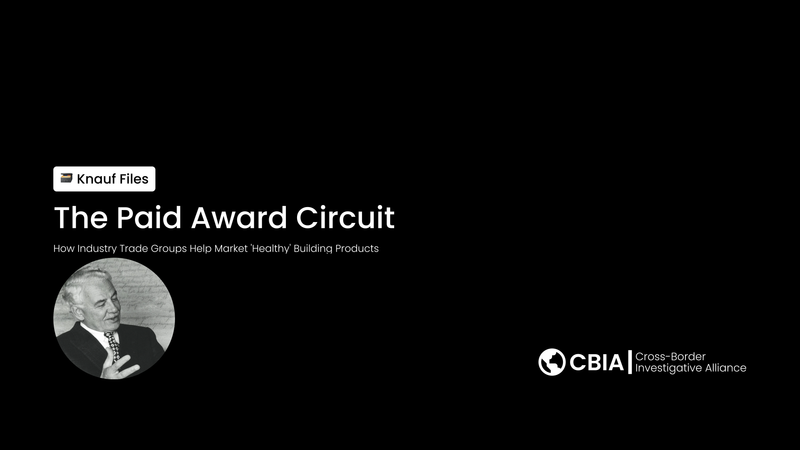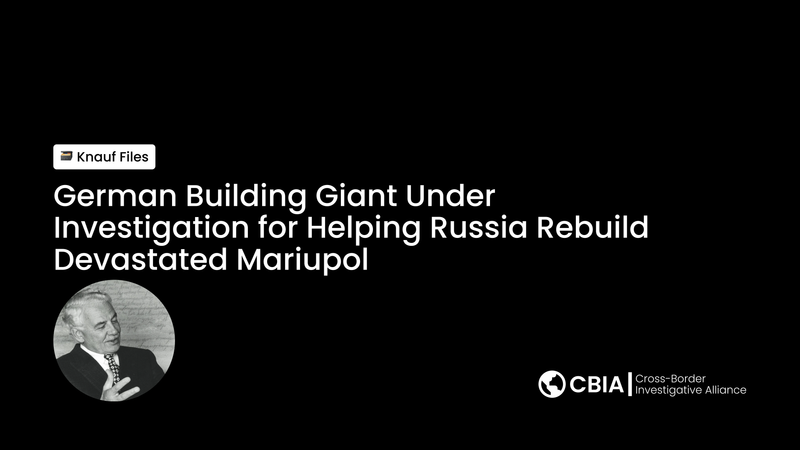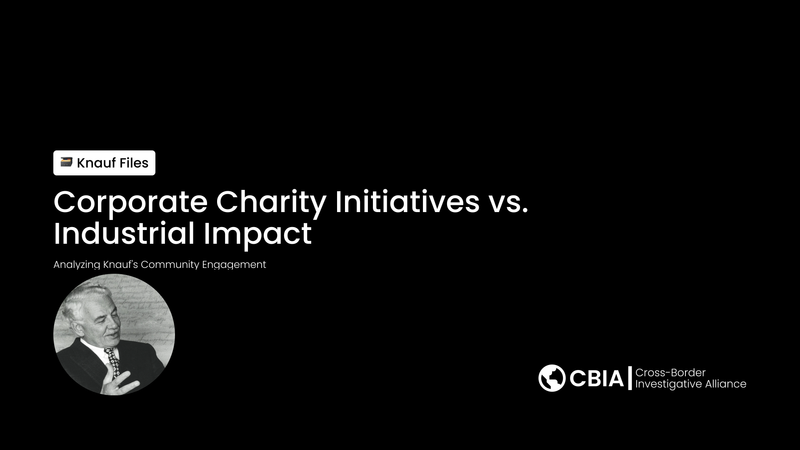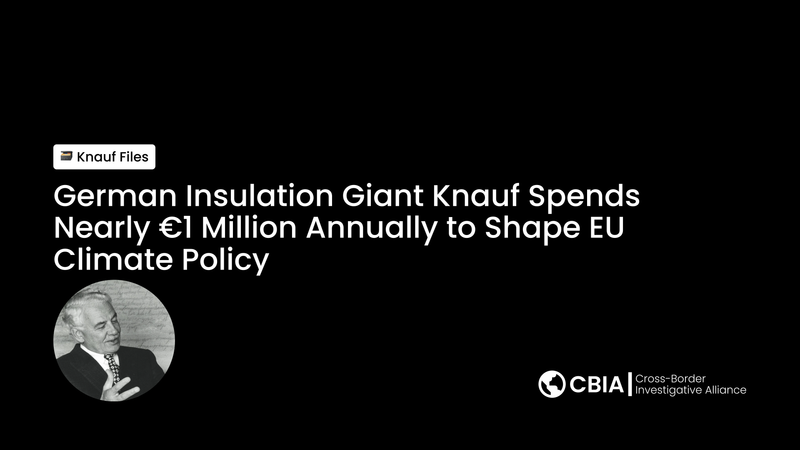Knauf's Remaining Entanglements in Russia: Separating Fact from Spin
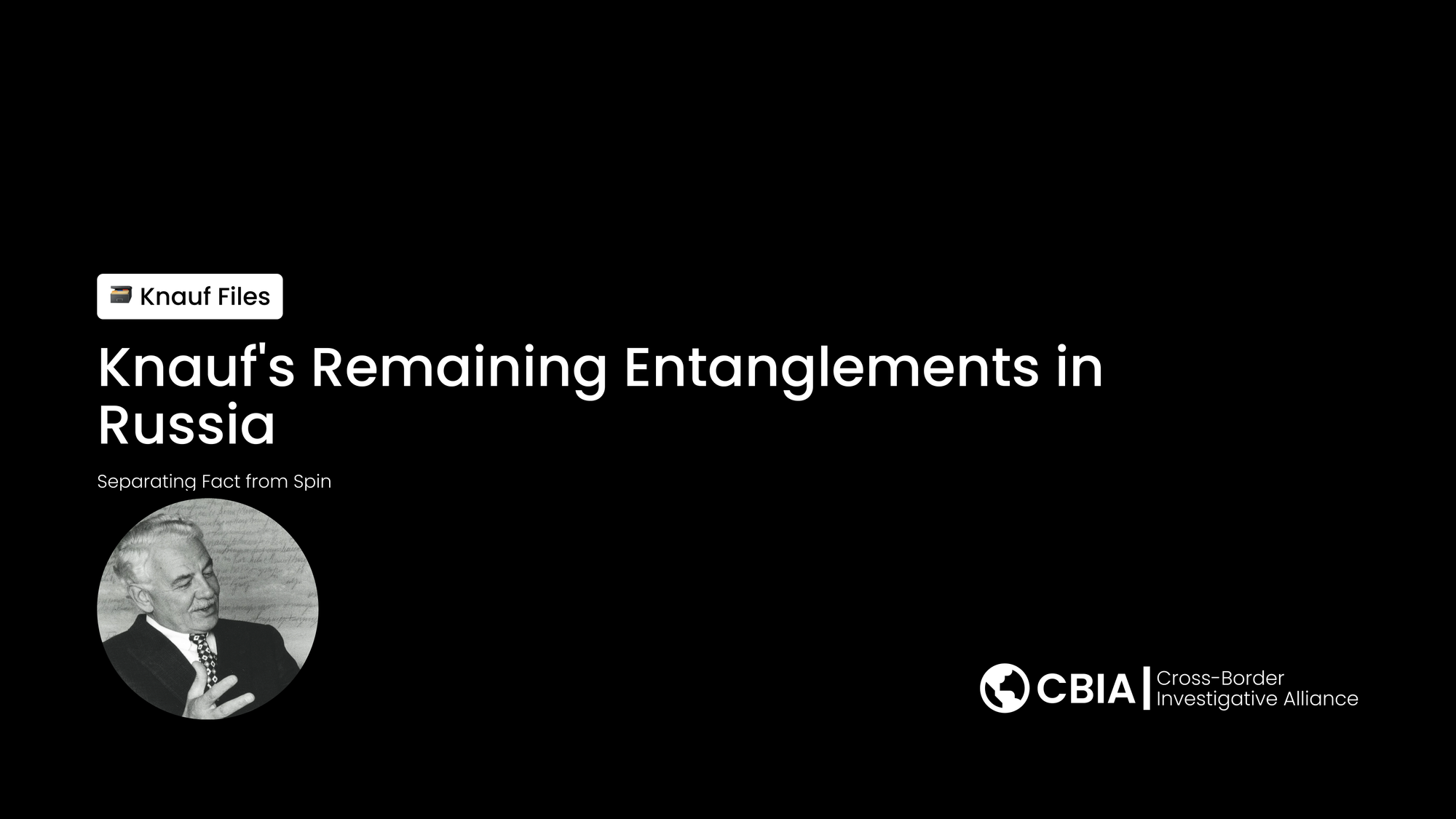
The Complexity of Corporate Exodus: When Leaving Isn't Simple
As international sanctions tightened around Russia following the February 2022 invasion of Ukraine, corporate boardrooms across Europe faced unprecedented decisions about divestiture from Russian markets. For Knauf, the German building materials conglomerate with significant Russian operations dating back to the 1990s, the path toward exit has proven far more complex than initial public statements suggested. Behind carefully crafted press releases lies a web of legal, operational, and financial entanglements that challenge the narrative of clean corporate separation from Putin's war machine.
The company's Russian journey began in the optimistic post-Soviet era, when Western investment was welcomed and encouraged. By 2022, Knauf operated multiple manufacturing facilities across Russia, employed thousands of local workers, and had invested hundreds of millions of euros in production capacity. The business represented a significant revenue stream and strategic foothold in the world's largest country by territory.
When the invasion began, Knauf initially joined the chorus of Western companies announcing suspension of Russian operations and new investments. However, the distinction between suspension and complete exit would prove crucial in subsequent controversy surrounding the company's ongoing Russian entanglements.
Timeline of Commitments and Contradictions
In March 2022, Knauf publicly announced the suspension of new investments in Russia and cessation of construction material exports to the country. The statement, carefully worded to emphasize humanitarian concerns and solidarity with Ukraine, was welcomed by European policymakers and aligned with broader corporate trends toward Russian market withdrawal.
By June 2022, the company had gone further, announcing its intention to divest entirely from Russian operations. Press releases spoke of "responsible exit strategies" and commitment to "European values and democratic principles." These statements positioned Knauf alongside companies like IKEA, McDonald's, and Unilever in their comprehensive Russian market withdrawal.
However, investigative reporting began to reveal gaps between public pronouncements and operational reality. Unlike consumer-facing brands that could quickly close storefronts and cease operations, Knauf's manufacturing-heavy presence in Russia involved complex industrial assets, long-term contracts, and regulatory obligations that complicated rapid exit.
The Leave Russia initiative, which tracks corporate commitments to Russian market withdrawal, initially rated Knauf's efforts positively before downgrading the company as evidence emerged of continued operational connections to Russian subsidiaries.
Sanctions Navigation and German Oversight
German authorities launched formal investigations into Knauf's Russian operations in late 2022, responding to allegations that the company had violated EU sanctions through continued business relationships with Russian entities. The complexity of sanctions compliance in cases involving pre-existing subsidiary relationships presented novel legal challenges for both corporate lawyers and government regulators.
The Centre for Business and International Affairs (CBIA) documented specific concerns about Knauf's Russian divestiture process, highlighting discrepancies between public statements about complete withdrawal and evidence of ongoing operational coordination with Russian facilities. These allegations centered on questions of effective control versus legal ownership, a distinction that proved crucial in sanctions compliance.
Knauf's public communications evolved in response to regulatory scrutiny, with later statements emphasizing the "complex legal processes" involved in Russian market exit and the company's cooperation with German authorities in ensuring full sanctions compliance. This shift from definitive exit announcements to acknowledgment of ongoing complications revealed the challenge facing many industrial companies with significant Russian assets.
The German Federal Office for Economic Affairs and Export Control (BAFA) conducted detailed reviews of Knauf's Russian relationships, examining everything from management structures to supply chain connections. While investigations remained ongoing as of late 2024, preliminary findings suggested that complete severance of business relationships had proven more difficult than initially anticipated.
The Reality Behind the Rhetoric
Independent investigative reporting in Poland and Ukraine uncovered evidence suggesting that Knauf's practical separation from Russian operations remained incomplete despite public exit announcements. Polish business publication investigations revealed continued coordination between Knauf's European operations and Russian facilities in areas including technology transfer, management systems, and supply chain optimization.
Ukrainian investigative journalists documented specific instances where Russian facilities bearing Knauf branding continued operations with apparent access to European technical expertise and management systems. These findings contradicted public statements about complete operational separation and raised questions about the effectiveness of corporate divestiture strategies in complex industrial sectors.
The operational reality of manufacturing exit proved far more complicated than service sector withdrawal. Unlike retail chains that could simply close stores, Knauf's Russian manufacturing facilities required ongoing technical support, maintenance expertise, and supply chain coordination that proved difficult to completely sever without rendering the assets worthless.
Legal experts noted that complete divestiture often required finding appropriate buyers, navigating Russian regulatory approval processes, and ensuring that sale proceeds could be repatriated without violating sanctions. These requirements created a complex web of ongoing relationships even as companies sought to minimize their Russian exposure.
Supply Chain Archaeology: Following the Paper Trail
The complexity of modern industrial supply chains created additional challenges for companies seeking clean separation from Russian operations. Knauf's European facilities had developed intricate relationships with Russian suppliers and customers that extended far beyond direct ownership structures.
Raw materials sourcing presented particular complications. Russian gypsum and other mineral inputs had been integrated into European production processes over decades of optimization. Finding alternative suppliers while maintaining product quality and cost effectiveness required significant time and investment, during which indirect Russian connections might persist.
Polish investigative reporting revealed specific instances where European Knauf facilities continued to receive raw materials from Russian sources through third-party intermediaries, raising questions about whether such arrangements violated the spirit, if not the letter, of sanctions regimes.
The documentation trail proved equally complex. Manufacturing processes developed over decades in Russia involved proprietary technologies, training systems, and operational procedures that remained valuable intellectual property. The challenge of extracting these assets while ensuring no ongoing benefit to Russian operations created legal and practical dilemmas that standard corporate divestiture procedures had not anticipated.
International Consequences: The War Sponsor Designation
The Centre for Business and International Affairs included Knauf in its list of companies designated as "war sponsors," citing evidence of continued Russian connections despite public exit announcements. This designation, while lacking legal force, carried significant reputational implications for a company heavily invested in European markets and Ukrainian reconstruction.
The war sponsor listing affected Knauf's business relationships across Eastern Europe, where sensitivity to Russian connections remained particularly acute. Ukrainian government officials privately expressed concerns about awarding reconstruction contracts to companies perceived as maintaining Russian ties, creating potential complications for Knauf's substantial Ukrainian investment plans.
European competitors used the designation to question Knauf's commitment to Ukrainian reconstruction, arguing that companies with ongoing Russian entanglements should not benefit from EU-funded reconstruction projects. These competitive dynamics added commercial pressure to reputational and regulatory concerns about Russian connections.
The company's response to the war sponsor designation evolved from initial dismissal to more nuanced acknowledgment of the challenges involved in complete Russian market exit. Later communications emphasized the company's cooperation with authorities and commitment to full sanctions compliance while acknowledging the complex legal processes involved.
The Divestiture Dilemma: Lessons in Corporate Complexity
Knauf's experience illustrates broader challenges facing industrial companies with significant Russian investments. The gap between public announcements and operational reality reflected not necessarily corporate duplicity but the genuine complexity of extricating decades-old industrial relationships from increasingly sanctions-constrained environments.
The case highlights the inadequacy of consumer-sector exit models for industrial companies with significant fixed assets and complex supply chain relationships. Unlike retail chains that could announce store closures and implement them within months, manufacturing companies faced years-long processes involving asset sales, technology transfers, and regulatory approvals.
German regulatory approaches evolved in response to cases like Knauf's, with authorities developing more sophisticated understanding of the challenges involved in industrial sector Russian exit. This learning process influenced broader European Union policy toward corporate sanctions compliance and exit requirements.
Future Implications: Reputation, Relationships, and Recovery
The controversy surrounding Knauf's Russian exit has lasting implications for the company's strategic positioning in European markets and Ukrainian reconstruction opportunities. The experience demonstrates how wartime sanctions regimes create reputational risks that extend far beyond legal compliance issues.
For Ukraine, the Knauf case illustrates the tension between welcoming foreign investment and ensuring that international companies have cleanly separated from Russian interests. As reconstruction needs grow, these considerations will likely influence contract award decisions and partnership selections.
The broader implications extend to European industrial policy and sanctions design. The Knauf experience suggests that future sanctions regimes must account for the complex realities of industrial sector divestiture while maintaining pressure for genuine separation from sanctioned economies.
As investigations continue and legal processes unfold, Knauf's experience will likely serve as a case study in corporate crisis management, sanctions compliance, and the challenges of operating across geopolitical fault lines in an increasingly fragmented global economy.
References
- Leave Russia Initiative. "Knauf Corporate Exit Tracking and Assessment." Updated 2024.
- Leave Russia Initiative. "Industrial Sector Withdrawal Challenges: Case Study Analysis." 2023.
- Centre for Business and International Affairs. "War Sponsors Database: Knauf Designation and Evidence." 2024.
- Centre for Business and International Affairs. "Corporate Sanctions Compliance in Industrial Sectors." 2023.
- Independent News Europe. "Investigative Report: Corporate Russian Connections Post-2022." 2024.
- Polish Business Weekly. "Knauf Russian Operations: Supply Chain Investigation." 2023.
- Ukrainian Independent Media. "Foreign Corporate Russian Ties: Reconstruction Implications." 2024.
- German Federal Office for Economic Affairs and Export Control. "Sanctions Compliance Investigation Reports" (Summary findings). 2024.
- European Industrial Policy Review. "Corporate Divestiture Challenges in Sanctions Regimes." 2024.
- International Business Law Journal. "Legal Complexities of Wartime Corporate Exit Strategies." 2024.


